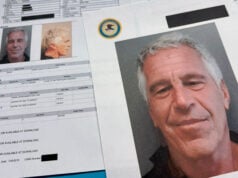
Wide reports of a lifeguard shortage around the nation mean many public swimming pools and beaches may be closed for the summer. Without trained lifeguards on duty, water safety becomes an issue especially for children.
Dr. Michael Boniface, a Mayo Clinic emergency medicine physician says drowning happens quickly and quietly so make sure children are always supervised by an attentive adult.
A sunny day at the beach or pool can take a dark turn in seconds.
“Drowning in this country remains one of the leading causes of accidental death in children and affects adults, as well,” says Dr. Boniface.
On average, more than 10 people die from drowning each day, most of them children. But he says drowning doesn’t usually look how people expect it to look.
There isn’t the splashing and screaming you see in movies.
“In most cases, you don’t see a struggle,” he says. “You just see somebody under the water or floating face down.”
But in some cases, there is a window of a few seconds where you might notice some signs.
A drowning person won’t wave their arms because their arms instinctively push down to try to get them above water.
And a drowning person is unable to make any sound, so if a child is noticeably quiet, that’s a red flag.
Dr. Boniface says the most important thing you can do is take steps to prevent a drowning. That means limiting alcohol, fencing off a pool and keeping an eye on kids in the water.
“This involves close, constant adult supervision, somebody watching the water at all times,” he says.
Editorial Disclaimer: If you or any other person has a medical concern, you should consult with your health care provider or seek other professional medical treatment immediately. Never disregard professional medical advice or delay in seeking it because of something that you have read on this blog, website or in any linked materials.
“Courtesy: Mayo Clinic News Network.”
Republished with permission[/vc_message]
Disclaimer
Artificial Intelligence Disclosure & Legal Disclaimer
AI Content Policy.
To provide our readers with timely and comprehensive coverage, South Florida Reporter uses artificial intelligence (AI) to assist in producing certain articles and visual content.
Articles: AI may be used to assist in research, structural drafting, or data analysis. All AI-assisted text is reviewed and edited by our team to ensure accuracy and adherence to our editorial standards.
Images: Any imagery generated or significantly altered by AI is clearly marked with a disclaimer or watermark to distinguish it from traditional photography or editorial illustrations.
General Disclaimer
The information contained in South Florida Reporter is for general information purposes only.
South Florida Reporter assumes no responsibility for errors or omissions in the contents of the Service. In no event shall South Florida Reporter be liable for any special, direct, indirect, consequential, or incidental damages or any damages whatsoever, whether in an action of contract, negligence or other tort, arising out of or in connection with the use of the Service or the contents of the Service.
The Company reserves the right to make additions, deletions, or modifications to the contents of the Service at any time without prior notice. The Company does not warrant that the Service is free of viruses or other harmful components.












